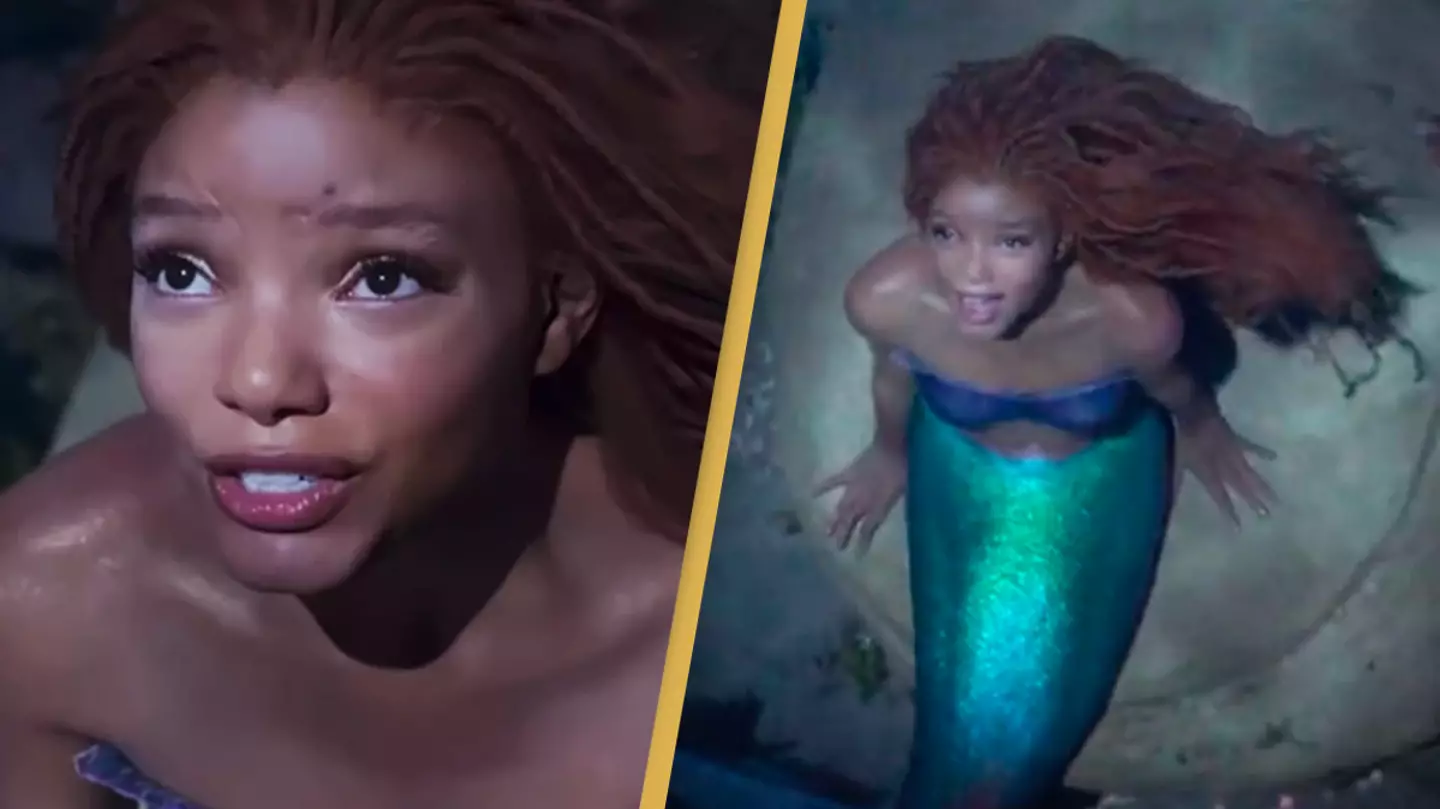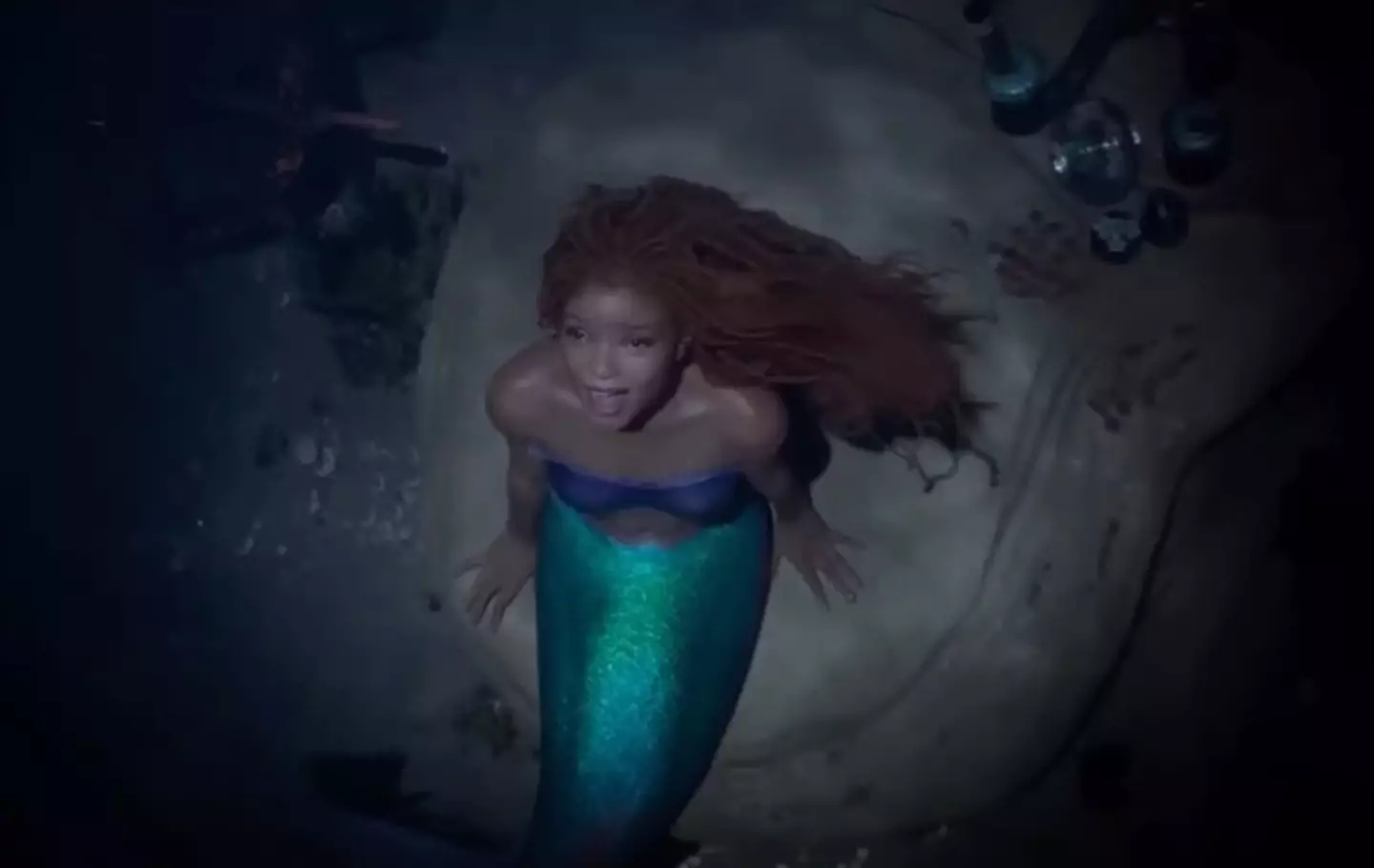
The latest addition to the Disney franchise has excited millions all over the world but, following a trailer release, others have voiced their outrage with the casting choice.
The Little Mermaid live action remake has received criticism from some people after casting Ariel as a Black woman, played by Halle Bailey.
However, with a star-studded cast including the likes of Melissa McCarthy, who will play the villainous Ursula, and Hamilton star Daveed Diggs, who will play the young mermaid's right-hand lobster, Sebastian, many others are bubbling with excitement for the latest addition to the Disney franchise.
Check out the trailer here:
Advert
However, it's clear that not everyone is on the same page in sharing their elation at the upcoming remake of the 1989 animated classic.
The outrage has since led to the hashtag '#NotMyAriel' where people share their theories on why Ariel – who has a talking lobster as a best friend, and is a fictional mermaid (as opposed to, you know IRL mermaids...) – cannot be played by a Black woman.
While many who find issue with the casting choice point to 'scientific' reasons why Ariel could not be Black, one marine biologist has since shut the seaside speculations down.

Karen Osborn, curator of the Smithsonian National Museum of Natural History, is an expert on all things fish.
Talking to Buzzfeed, Osborn explained how fish 'reflect whatever's around them'.
She said: "As you move through the water column – as you dive deeper and deeper – right at the surface, a lot of things are blue, because you blend in with the sky behind you for predators that are down below looking up.
"And then you have a bunch of mirrored animals, so they just reflect whatever's around them and that's a good camouflage in shallow water," the marine specialist continued.
"As you get deeper, you see animals that are pigmented or deep red [because] there's hardly any red light in the deep sea, so being red is effectively being black.
"Then you see lots of brown fish and lots of black fish and lots of ultra-black fish," Osborn said.
When asked about optimum camouflage, Osborn explained that mermaids, if real, are 'the most suited to the most types of habitats in the shallower water'.
She concluded: "Because if they're transparent, they can blend in pretty well.
"But that makes for difficult movie shooting. I don't think they'll find any transparent actresses."
While Osborn is correct that there aren't heaps of 'transparent actresses' to choose from, it would make most scientific sense, when hunting prey or avoiding predators in the deep sea, for mermaids to be 'deep red' or 'black'.
Therefore, not having bright red hair, a purple clam bra and a green tail as the cartoon Ariel is portrayed in the 1989 original.
After just two days of being on YouTube, the trailer for the film hit a staggering 1.5 million dislikes.
Bailey, 22, has since received tons of support from fans and fellow actors following the backlash.
This includes the original Ariel voice actor, Jodi Benson, who rushed to share with people how 'proud' she was of Bailey's performance in the teaser video, in which the 22-year-old can be heard singing a rendition to the class Part of You World.
Taking to her Instagram story, Benson praised Bailey: "So thrilled! So excited! Halle, you were absolutely amazing!
"I'm SO proud of you and your beautiful performance as Ariel!" the 60-year-old added.
The Little Mermaid live action film is set to hit cinemas 26 May 2023.
If you have a story you want to tell, send it to UNILAD via [email protected]
Topics: Film and TV, Disney